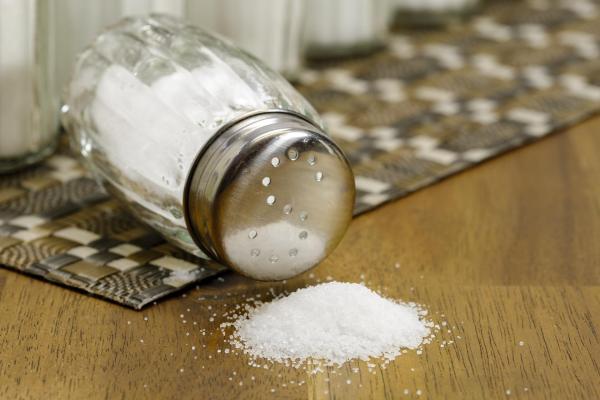The study looked at patients with heart failure; individuals felt to be particularly sensitive to the presence of additional salt. Heart failure comes in various forms, but at its heart (pun intended?), the pumping ability fails, and fluid backs up into the lungs, causing increased shortness of breath or into our veins, causing swelling of the legs. Physiologically, the addition of salt increases our blood volume, making the failure of the heart as a pump even worse, making shortness of breath, limited mobility, and leg swelling worse.
The American Heart Association recommends no more than 2.3 gm of salt daily, ideally 1.5 gms. The typical diet is closer to 3.5 gms. This has spawned a cottage industry of listicles, including the Salty Six and 30 Foods with High Salt and even legislation on allowable salt intake by individuals living in nursing homes.
The study was randomized but open-label; participants knew whether they were being sodium restricted or not. Roughly 800 participants, optimally managed for the heart failure, were randomized to usual treatment vs. 1500mg salt restriction. The patients were NYHA classification 2 or 3 – mildly to moderately impaired for physical activity but still comfortable while resting. Mean age 66, about one-third female, and the study ran for one year before it was prematurely terminated by what else, COVID.
- “At 12 months, dietary sodium intake was 1658 mg in the low-sodium diet group vs. 2073 mg in the usual care group.”
- “The primary outcome, all-cause mortality, or cardiovascular emergency department visit/hospitalization at 12 months, occurred in 15% of the low-sodium group vs. 17% of the usual care group.”
- “All-cause mortality at 12 months: 6% of the low-sodium group vs. 4% of the usual care group.”
- “The difference in the adjusted mean Kansas City Cardiomyopathy Questionnaire (KCCC) [1] overall summary score at 12 months was 3.38 points greater in the low-sodium group vs. usual care group.” This questionnaire has a 100-point scale, representing a 3% change.
- “The difference in the adjusted mean 6-minute walk test at 12 months was 6.6 minutes greater in the low-sodium group vs. usual care group.”
“In ambulatory patients with heart failure, a dietary intervention to reduce sodium intake did not reduce clinical events.”
Only the sodium intake and subjective KCCC score were statistically significant. Significant sodium restriction did not improve patients' day-to-day health or outcomes in the presence of mild to moderate congestive heart failure. And these roughly 6.2 million patients are theoretically more sensitive to the impact of salt intake than the approximately 344 million of us without CHF. (Admittedly, I am playing a bit fast and loose with those numbers. It doesn’t consider individuals with renal impairment where sodium intake is a much greater issue or other conditions, but the number of us advised to limit sodium is far greater; than those at risk.)
In an open-label study and therefore with bias in self-reporting, sodium restriction only detected a small subjective difference with sodium restriction and no clear-cut physical benefit. Many studies on the impact of dietary salt on hypertension are from the late 80s and 90s – perhaps it is time to reassess those findings, especially in light that some individuals are more salt-sensitive than others. A call for just such a study was made in 2018 and remains unfulfilled.
Source: Study of Dietary Intervention Under 100 mmol in Heart Failure - SODIUM-HF A presentation at the American College of Cardiology (ACC)
Subsequently published as Reduction of dietary sodium to less than 100 mmol in heart failure (SODIUM-HF): an international, open-label, randomised, controlled trial Lancet DOI: 10.1016/S0140-6736(22)00369-5
Note: the Lancet article is behind a paywall, and my reporting is based on the material available in the ACC presentation.




